Expanding your Amazon business to international markets opens a world of opportunities. However, it also introduces the complexity of managing global shipping. As an Amazon seller, understanding the various global shipping options is crucial to ensure efficient logistics and a superior customer experience.
Overview of Global Shipping Options for Amazon Sellers
Amazon sellers have multiple shipping options to consider when catering to international customers.
The primary methods include:
1. Fulfillment by Amazon (FBA): Amazon handles storage, packaging, and shipping. This method provides access to Amazon’s robust logistics network, ensuring quick delivery times and Prime eligibility.
2. Amazon Global Selling (AGS): This program allows sellers to list and sell products on multiple Amazon marketplaces worldwide, streamlining the international selling process.
3. Merchant Fulfilled Network (MFN): Sellers manage their storage, packaging, and shipping processes, offering greater control over logistics.
4. Third-Party Logistics (3PL) Providers: These companies manage storage, fulfillment, and shipping on behalf of the seller, providing flexibility and scalability.
Each option has advantages and drawbacks, depending on your business size, product type, and target market. Let’s look into each of these.
Importance of Choosing the Right Fulfillment Method
Choosing the suitable fulfillment method is critical for several reasons:
- Cost Efficiency: Different methods have varying storage, shipping, and handling costs. Selecting the appropriate method helps in managing your budget effectively.
- Customer Satisfaction: Timely and reliable delivery enhances customer experience, leading to positive reviews and repeat purchases. Fast shipping options like FBA can significantly boost your sales and customer loyalty.
- Inventory Management: Efficient fulfillment methods ensure better inventory turnover, reducing storage costs and minimizing stockouts.
- Scalability: As your business grows, your fulfillment method should be able to scale with your operations without compromising efficiency or customer service.
Brief Introduction to Amazon MFN
Amazon’s Merchant Fulfilled Network (MFN) is a popular choice for sellers who prefer to manage their shipping logistics. This option is ideal if you have a robust logistics setup or your products require special handling.
Benefits of Amazon MFN
- Control: Manage the packaging, shipping speed, and delivery process, allowing customization and flexibility.
- Cost Savings: Lower costs than FBA fees, especially if you have established shipping contracts.
- Special Handling: Ideal for products needing specific packaging or handling instructions.
You can optimize your shipping strategy and enhance your global reach by evaluating your business needs and leveraging the right tools and partnerships.
Amazon MFN Explained
Merchant Fulfilled Network (MFN) is an Amazon fulfillment option where sellers handle products’ storage, packaging, and shipping rather than relying on Amazon’s logistics services. This approach gives sellers more significant control over their inventory and shipping processes.
Key Features of MFN:
- Control Over Shipping: Sellers choose their shipping methods and carriers, allowing customized delivery options.
- Cost Management: Sellers can save on fulfillment fees using their logistics infrastructure.
- Flexibility: MFN is ideal for products requiring special handling or for businesses with seasonal fluctuations in inventory.
Seller Responsibilities Under MFN
When using MFN, sellers take on several key responsibilities to ensure smooth and efficient order fulfillment:
Inventory Management:
- Storage: Sellers must manage inventory storage, ensuring products are readily available for shipment.
- Stock Levels: Maintaining accurate stock levels is crucial to avoid overselling and ensure timely fulfillment.
Shipping:
- Packaging: Sellers are responsible for packaging products securely to prevent damage during transit.
- Carrier Selection: Choosing reliable shipping carriers and negotiating rates is essential for cost-effective and timely deliveries.
- Shipping Labels: Generating accurate shipping labels and handling any logistics paperwork.
Customer Service:
- Order Tracking: Providing customers with tracking information and updates on their shipment status.
- Handling Returns: Managing product returns, exchanges, and refunds in compliance with Amazon’s policies.
- Customer Inquiries: Responding promptly to customer questions and concerns about shipping and delivery.
Streamline your MFN process with Intoglo’s comprehensive logistics solutions—contact us today!
Comparative Overview of Amazon MFN vs. FBA for Global Shipping
When deciding between Amazon MFN and Fulfillment by Amazon (FBA), it’s essential to consider the differences in costs, control, and responsibilities. Therefore, let’s weigh both sides before you decide.
Amazon MFN:
- Control: This option offers greater control over the entire shipping process, allowing sellers to customize their shipping methods and packaging.
- Costs: Potentially lower fulfillment costs as sellers avoid Amazon’s FBA fees. However, sellers must manage their own storage and shipping expenses.
- Flexibility: Ideal for products requiring special handling or for businesses with fluctuating inventory needs.
Fulfillment by Amazon (FBA):
- Convenience: Amazon handles storage, packaging, shipping, and customer service, freeing sellers’ time to focus on other aspects of their business.
- Prime Eligibility: Products fulfilled by FBA are eligible for Amazon Prime, which can enhance sales and visibility.
- Costs: FBA fees, including storage fees, fulfillment fees, and additional charges for long-term storage, will raise costs.
- Speed: Faster shipping times due to Amazon’s extensive fulfillment network.
Choosing between MFN and FBA depends on your business needs, product types, and logistical capabilities. MFN offers greater control and potential cost savings but requires managing the entire fulfillment process. FBA provides convenience and access to Prime benefits but comes with higher costs and less control over shipping.
Advantages of Opting for Amazon MFN for Global Shipping
Choosing Amazon’s Merchant Fulfilled Network (MFN) for global shipping offers several strategic advantages for sellers.
Here’s a detailed look at why MFN can be a beneficial choice for your international shipping needs.
Control Over International Shipping and Customer Interactions
- Enhanced Control
By opting for MFN, you retain complete control over your shipping processes. This includes selecting carriers, determining shipping routes, and setting packaging standards. This control allows you to tailor your logistics strategy better to meet your customers’ expectations and specific market needs.
- Direct Customer Interaction
MFN enables you to interact directly with your customers, allowing you to address their concerns, provide personalized service, and handle special requests more efficiently. This direct engagement can enhance customer satisfaction and loyalty.
- Customization
With MFN, you can offer customized shipping options, such as expedited shipping or gift wrapping, enhancing the customer experience and differentiating your business from competitors.
Flexibility in Managing Inventory and Avoiding Amazon’s Storage Fees
- Inventory Management
MFN allows you to manage your inventory flexibly. You can adjust your stock levels based on demand without being constrained by Amazon’s storage policies. This flexibility is particularly beneficial for businesses with seasonal products or fluctuating demand.
- Cost Savings
One significant advantage of MFN is avoiding Amazon’s storage fees, especially long-term ones that can accumulate if products remain in Amazon’s warehouses for extended periods. You can optimize costs and allocate resources more effectively by managing your storage.
- Scalability
MFN provides the scalability needed to grow your business at your own pace. As your business grows, you can expand your storage and fulfillment capabilities without being limited by Amazon’s warehouse capacities or fees.
Offering Products Not Suitable for FBA
- Handling Oversized Products
Certain significantly oversized or bulky items may not be suitable for FBA due to high storage and handling fees. MFN allows you to ship these products cost-effectively using your preferred carriers and packaging methods.
- Managing Slow-Moving Inventory
Products with a slower turnover rate can incur significant storage fees in FBA. MFN enables you to manage these products in your warehouse, avoiding long-term storage fees and reducing overall costs.
- Special Handling Needs
Some products may require special handling or packaging that FBA cannot accommodate. With MFN, you have the flexibility to meet these specific requirements, ensuring that your products are shipped safely and meet customer expectations.
Opting for Amazon MFN for global shipping provides significant control, flexibility, and cost savings advantages. You can manage your shipping processes, interact directly with customers, and avoid high storage fees associated with FBA. Also, MFN is ideal for products requiring special handling or having unique storage needs.
Challenges of Using Amazon MFN for Global Shipping
While Amazon’s Merchant Fulfilled Network (MFN) offers significant advantages, sellers must also be aware of its challenges.
Here are some of the critical challenges associated with using MFN for global shipping:
1. Increased Responsibility for International Logistics and Compliance
- Complex Logistics Management
Using MFN requires sellers to handle all aspects of international logistics. This includes managing the shipping process, selecting appropriate carriers, and ensuring timely delivery. Coordinating international shipments can be complex and time-consuming, especially when dealing with multiple destinations and varying customs regulations.
- Compliance with Shipping Documents
Sellers must ensure that all necessary shipping documents are accurately prepared and submitted. This includes commercial invoices, packing lists, bills of lading, and certificates of origin. Mistakes or omissions in documentation can lead to delays, fines, or even the seizure of goods by customs authorities.
- Regulatory Compliance
Different countries have unique import regulations and standards. Sellers must stay updated on these regulations to ensure compliance. This involves understanding tariff classifications, import restrictions, and health and safety standards for shipped products.
2. Potential Complications with Seller-Fulfilled Returns
- Managing Returns
Handling returns can be particularly challenging for international shipments. Sellers must manage the return logistics, including coordinating with carriers for return shipping, inspecting returned items, and processing refunds or replacements.
- Compliance with Amazon’s Return Policies
Amazon has strict return policies that sellers must adhere to. This includes offering a hassle-free return process and timely refunds. Failing to comply with these policies can lead to negative feedback, account suspensions, or loss of selling privileges.
- Increased Costs:
International returns can be high, impacting the seller’s bottom line. This includes return shipping fees, potential restocking fees, and handling costs. Managing these expenses while maintaining a positive customer experience can be challenging.
3. Absence of Prime Badge Affecting Visibility and Sales
- Reduced Visibility
Products fulfilled through MFN do not carry the Amazon Prime badge, which can affect their visibility on the platform. Prime members often filter their searches to show only Prime-eligible items, which means MFN listings might not appear in these search results.
- Impact on Sales
The Prime badge is associated with fast, free shipping and reliable service, which can significantly influence purchasing decisions. Without the Prime badge, MFN listings may attract fewer customers, leading to lower sales volumes than FBA-listed products.
- Customer Trust
Prime eligibility is a mark of trust and quality for many Amazon shoppers. Products without this badge might be perceived as less reliable or slower in delivery, impacting customer confidence and overall sales performance.
Evaluating these challenges against your business capabilities and resources is essential to determine if MFN is the right fulfillment method for your international sales strategy.
Setting Up Amazon MFN for Global Shipping
Expanding your Amazon business to international markets using the Merchant Fulfilled Network (MFN) requires a strategic approach and understanding of the platform’s tools and guidelines.
Here’s a detailed guide to help you get started.
Steps to Get Started with MFN for International Sellers
1. Create and Configure Your Seller Account
- Sign Up: Ensure you have an active Amazon Seller Central account. If you plan to sell on multiple international marketplaces, you may need to set up additional accounts specific to those regions.
- Settings Configuration: You can configure your account settings to handle international sales, including currency settings, tax information, and shipping preferences.
2. Understand Regional Requirements
- Regulations and Compliance: Familiarize yourself with the import regulations, customs requirements, and product compliance standards of the countries you plan to ship to.
- Shipping Restrictions: Be aware of any shipping restrictions or prohibitions affecting your product categories.
3. Set Up Shipping Templates:
- Shipping Rates: Define your shipping rates for different regions. Consider offering multiple shipping options (standard, expedited, etc.) to cater to customer needs.
- Delivery Times: Specify estimated delivery times to manage customer expectations and enhance satisfaction.
4. Optimize Your Inventory Management:
- Stock Levels: Maintain adequate stock levels to meet international demand. Inventory management tools are used to track stock across different regions.
- Storage Solutions: Consider your storage options. You may need additional warehouse space to handle increased inventory for international orders.
Listing Products on Amazon’s International Marketplaces
1. Product Listings
- Create Listings: Use Amazon’s listing tools to create detailed product listings for each marketplace. Ensure you comply with local listing requirements, including language, product information, and pricing.
- Localized Content: Translate product descriptions and details into the local language. Consider hiring professional translators to ensure accuracy and cultural relevance.
2. Compliance and Regulations
- Product Compliance: Verify that your products meet the safety and compliance standards of the target market. This may include obtaining necessary certifications or approvals.
- Pricing Strategy: Set competitive prices considering local market conditions, currency conversion, and shipping costs.
3. Inventory Management
- Stock Availability: Ensure that your products are available and ready to ship from your designated fulfillment centers. Regularly update your inventory to avoid stockouts.
Support and Tools Provided by Amazon for MFN Sellers
1. Shipping Settings Automation
- Dynamic Adjustments: This tool allows you to automate your shipping settings based on order volume, delivery speed, and other factors. It helps streamline shipping processes and ensures accurate delivery promises.
- Customization: Customize your shipping settings to match your operational capabilities and optimize delivery performance.
2. Amazon Buy Shipping
- Convenient Shipping Labels: Purchase shipping labels directly through Amazon, ensuring accurate tracking and delivery updates. This tool integrates with major carriers and offers competitive shipping rates.
- Shipping Protection: By using Amazon’s Buy Shipping, you receive protection against delivery-related defects and can offer a reliable shipping experience to your customers.
3. Seller Support
- Guidance and Assistance: Amazon provides dedicated support for MFN sellers, including help with setting up shipping templates, resolving issues, and optimizing fulfillment processes.
- Educational Resources: Access to a wealth of resources, including tutorials, webinars, and documentation, to help you manage your MFN operations effectively.
Setting up Amazon MFN for global shipping requires careful planning and an understanding of international logistics. You can effectively manage your MFN operations by configuring your seller account, optimizing product listings, and utilizing Amazon’s tools and support.
Best Practices for Global Shipping with Amazon MFN
Setting up and managing your global shipping operations through Amazon’s Merchant Fulfilled Network (MFN) can significantly impact your business’s success in international markets.
Here are some best practices to help you optimize your shipping processes and enhance customer satisfaction.
Creating Compelling Product Listings
Use High-Quality Images
Use professional-quality images and include close-ups of essential features that showcase your products and help customers understand exactly what they are purchasing.
Localized Content
Translate product descriptions and specifications into the local language of each target market, ensuring accuracy and cultural appropriateness.
SEO Optimization
Use relevant keywords in your product titles and descriptions to improve search visibility. Research popular search terms in your target markets to tailor your listings accordingly.
Reducing Handling and Shipping Time
Efficient Inventory Management
- Keep accurate inventory records and monitor stock levels to ensure you can promptly fulfill orders. Use inventory management tools to avoid stockouts and overstocking.
- Consider using a warehouse management system (WMS) to streamline storage, picking, and packing processes.
Streamlined Fulfillment Processes
- Standardize your packing procedures to reduce handling time. Use pre-designed packaging templates and labels to speed up the packing process.
- Implement a barcode scanning system to locate and process items in your warehouse quickly.
Carrier Partnerships
- Establish relationships with reliable shipping carriers that offer fast and affordable international shipping options. Negotiate rates and services to get the best deals.
- Use carriers that provide tracking and insurance services to enhance customer confidence and protect against lost or damaged shipments.
Utilizing Amazon Buy Shipping
Competitive Rates
- Amazon Buy Shipping offers competitive shipping rates with major carriers, helping you save on shipping costs. This service leverages Amazon’s volume discounts to provide cost-effective shipping solutions.
- Compare rates and services from different carriers within Amazon Buy Shipping to select the best option for each shipment.
Shipping Protection
- Using Amazon Buy Shipping protects against certain claims, such as late deliveries or lost packages. This can reduce your risk and provide peace of mind.
- Ensure that you meet the requirements for claim protection by following Amazon’s shipping guidelines and using the provided tracking information.
Integrated Shipping Labels
- Purchase and print shipping labels directly through Amazon Seller Central. This integration simplifies the shipping process and ensures accurate tracking and delivery updates.
- Take advantage of Amazon’s automated shipping notifications to inform customers about their order status.
Optimizing Product Offerings Based on Customer Feedback
Customer Feedback Analysis
- Regularly review customer feedback and ratings for your products in different regions. Identify common themes or issues and address them promptly.
- Use customer reviews to understand regional preferences and adjust your product offerings accordingly.
Tailored Offerings
- Customize your product offerings based on regional demand and customer feedback. Introduce new products that cater to specific market needs or preferences.
- Discontinue or modify products that consistently receive negative feedback or have low sales in certain regions.
Engage with Customers
- Respond promptly to customer inquiries and reviews. Addressing concerns and showing value to customer feedback can improve satisfaction and loyalty.
- Use insights from customer interactions to make data-driven decisions about your product line and marketing strategies.
Amazon MFN vs. FBA: Choosing the Best Shipping Strategies
Choosing the proper fulfillment method for your Amazon business is crucial, especially when considering global shipping. Amazon’s Merchant Fulfilled Network (MFN) and Fulfillment by Amazon (FBA) offer distinct advantages and challenges.
Here are comprehensive points to help you decide based on your business size, volume, and shipping needs.
Fulfillment Strategy Selection: Business Size, Volume, & Shipping
Amazon MFN
- Control and Flexibility: With MFN, you manage the entire fulfillment process, including storage, packaging, and shipping. This method provides maximum control over how your products are handled and shipped.
- Customization: This option is ideal for businesses that require custom packaging or handling, such as those selling fragile, oversized, or highly specialized items.
- Cost Efficiency: Lower fulfillment costs, as you avoid Amazon’s storage and handling fees. However, this depends on your own logistics capabilities and volume.
Amazon FBA
- Convenience: Amazon handles storage, packaging, shipping, and customer service, allowing you to focus on other aspects of your business, such as marketing and product development.
- Prime Eligibility: Products fulfilled by FBA are eligible for Amazon Prime, which can significantly boost visibility and sales.
- Scalability: FBA is suitable for businesses with high sales volumes, as it can scale with your growth without additional infrastructure.
2. Evaluating Costs, Control, Flexibility, and Customer Experience Aspects
Costs
- MFN: You avoid FBA fees, but you must cover your own storage, packaging, and shipping costs. This can be more cost-effective if you have a streamlined logistics operation.
- FBA: Includes storage fees, fulfillment fees, and additional charges for long-term storage. While costs may be higher, the convenience and potential increase in sales can offset these expenses.
Control
- MFN: Complete control over the fulfillment process, allowing for customization and flexibility. This is ideal for businesses that require specific handling or have unique shipping needs.
- FBA: Less control over the fulfillment process, as Amazon manages storage and shipping. This can be a drawback for businesses with specialized packaging requirements.
Flexibility
- MFN: High flexibility in packaging, shipping methods, and carriers. You can tailor the fulfillment process to meet specific customer needs and preferences.
- FBA: Limited flexibility, as Amazon uses standardized processes for storage and shipping. However, the standardized approach ensures consistency and reliability.
Customer Experience
- MFN: Direct customer interaction, allowing for personalized service and handling of specific requests. However, the absence of the Prime badge can impact visibility and sales.
- FBA: Enhanced customer experience due to fast, reliable shipping and Prime eligibility. FBA also handles customer service and returns, which can improve customer satisfaction.
Strategy for Using Both FBA and MFN for Flexibility and Backup
Combining FBA and MFN can provide the best of both worlds, offering flexibility and a reliable backup strategy.
Hybrid Approach
- FBA for High-Volume Products: Use FBA for your best-selling products to take advantage of Amazon’s logistics network, Prime eligibility, and enhanced visibility.
- MFN for Specialized Items: Utilize MFN for products that require special handling, oversized items, or those with lower sales volumes. This allows for greater control and customization.
Backup Strategy
- Inventory Management: Keep a portion of your inventory in FBA warehouses and manage additional stock through MFN. This ensures you can continue fulfilling orders even if one method faces disruptions.
- Cost Management: Balance the costs by using FBA for items with higher turnover rates and MFN for slow-moving inventory to avoid long-term storage fees.
Customer Satisfaction
- Seamless Service: Offering both FBA and MFN ensures you can meet different customer needs and preferences, providing a seamless shopping experience.
- Flexibility in Shipping: Leverage the strengths of both methods to optimize shipping times and costs, ensuring timely and cost-effective deliveries.
Choosing between Amazon MFN and FBA depends on your business’s specific needs, product types, and logistical capabilities. While MFN offers control and flexibility, FBA provides convenience and scalability. A hybrid approach can often be the best strategy, combining the strengths of both methods to enhance your global shipping operations.
Contact us today to maximize your flexibility and efficiency with Intoglo’s logistics solutions!
Conclusion
Expanding your Amazon business internationally offers immense potential but demands meticulous planning and management. Intoglo, an Amazon-certified shipping partner, has successfully delivered shipments for over 200 Amazon sellers across the USA. By adhering to Amazon’s specific guidelines, Intoglo ensures timely and hassle-free deliveries.
For a seamless and efficient international shipping experience, consider partnering with Intoglo. Specializing in door-to-door Full Container Load (FCL) shipments from India to the USA, Intoglo ensures faster, cost-effective deliveries with 24/7 support. Contact Intoglo today!


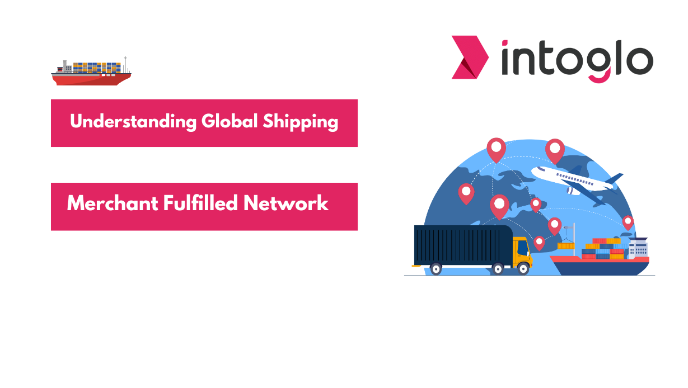
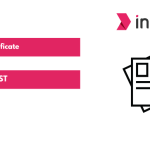
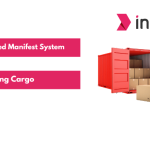
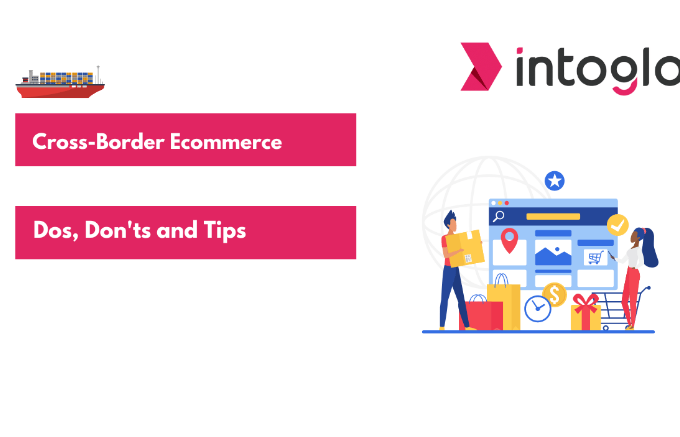
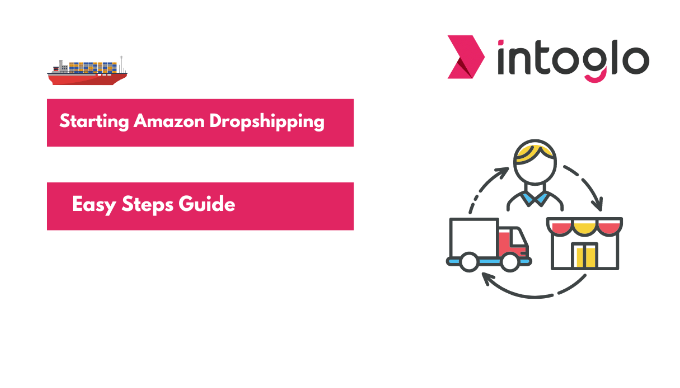
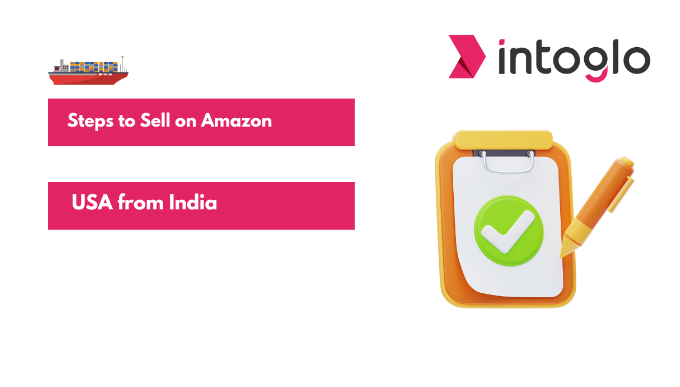
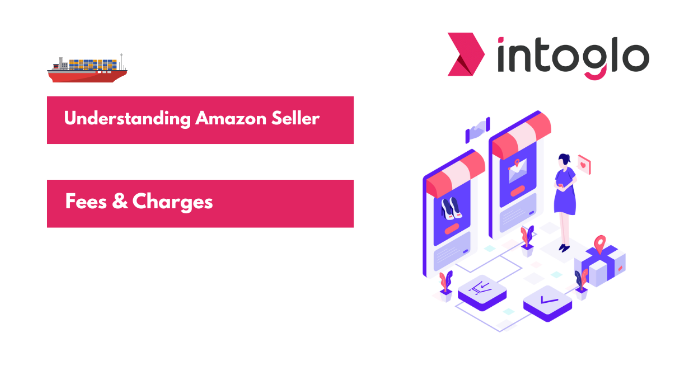
Leave a comment